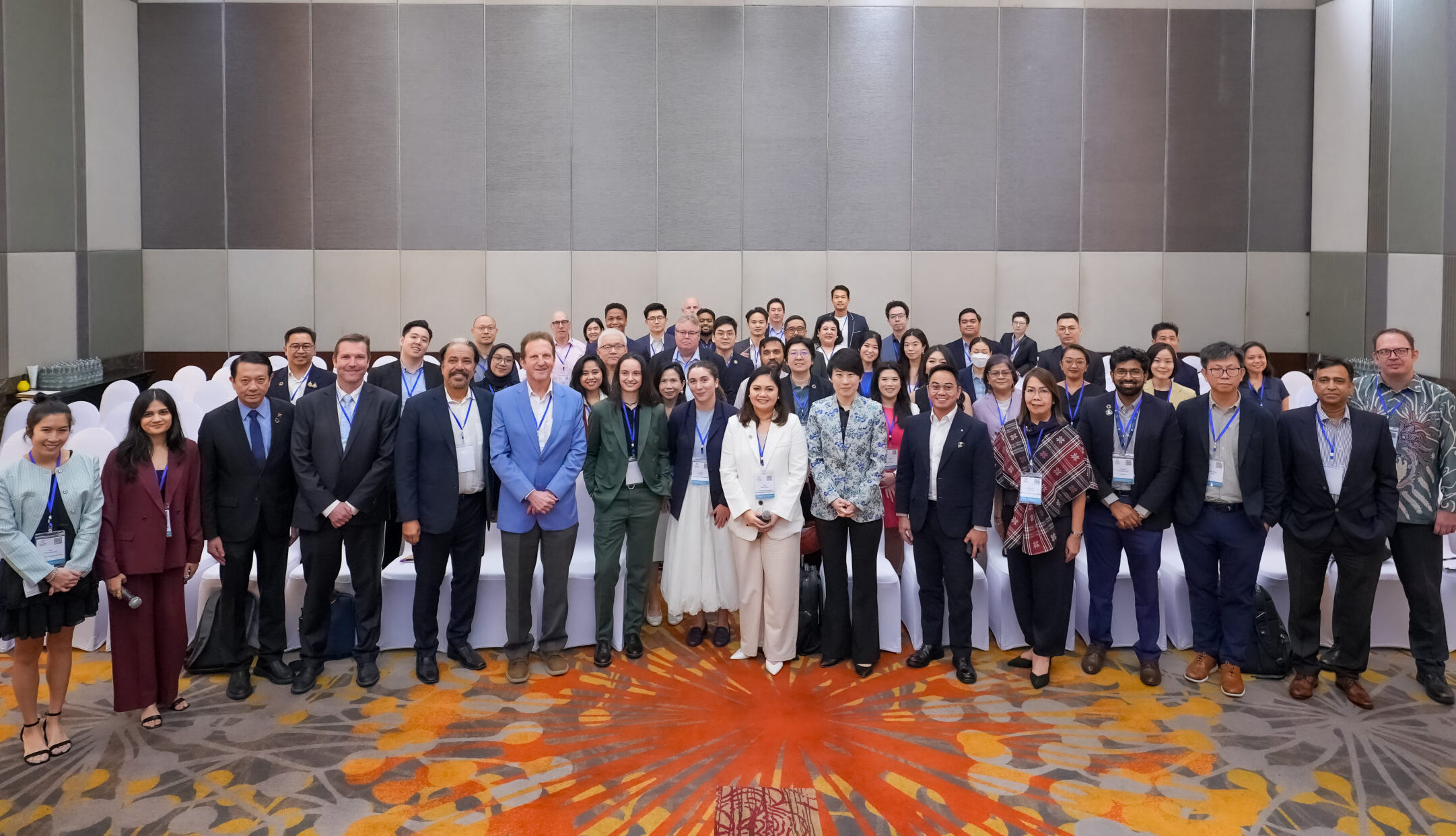During Bangkok Climate Action Week 2025, the Southeast Asia Corporate Decarbonization Exchange (CDx) Summit convened over 100 business leaders, experts, and solution providers to answer a defining question: how can Southeast Asia build readiness for credible, large-scale decarbonization?
Over two days, participants engaged in Fishbowls, Masterclasses, the Great Debate, Townhall and World Café sessions designed to foster collaboration, surface challenges, and move from ambition to implementation. The discussions made one point clear: readiness is now the region’s most urgent priority.
Six cross-cutting themes emerged, capturing the region’s collective progress and its growing capacity to lead an authentic, pragmatic transition.
Strategic Takeaways from CDx Summit 2025
1. Credibility Begins with Data and Discipline
A credible decarbonization strategy starts with a reliable baseline, but companies continue to struggle with incomplete data, differing interpretations of standards, and limited internal capacity.
The Summit emphasized progress over perfection: start measuring, verify what’s material, and build confidence through consistency.
Verification, traceability, and transparent methodologies are key for turning early reporting efforts into long-term credibility.
Organizations that embed accountability early through internal data governance, verification, and clear baselines, will be best positioned to attract finance and meet stakeholder expectations.
2. Energy Efficiency and Renewables: Two Sides of the Same Coin
Energy efficiency remains the fastest, most cost-effective way to reduce emissions, yet it continues to be overshadowed by renewables in the region’s investment landscape.
Discussions highlighted the need to treat energy efficiency and clean energy integration as complementary, not competing strategies.
Efficiency makes renewables more affordable, while renewables make efficiency sustainable.
Companies that combine energy audits, rooftop solar, and storage systems are demonstrating quick payback periods and long-term resilience, setting a model for practical decarbonization.
3. From Available Capital to Bankable Projects
Finance was repeatedly identified as the region’s biggest bottleneck – not due to a lack of funds but due to a lack of bankable, standardized projects.
Investors are eager, but the disconnect lies in project readiness, clarity, and aggregation.
The Summit called for stronger alignment between financial institutions, regulators, and developers to standardize terms, de-risk investments, and lower transaction costs.
Carbon markets were also seen as a major opportunity, provided they evolve toward transparency, integrity, and regulation that enable confidence from mainstream investors.
As one speaker noted, ‘we need to build finance-readiness as much as climate-readiness.’ Until then, the billions in climate finance will remain out of reach.
4. Restoring Trust in Nature-Based Solutions
Nature-Based Solutions (NbS) remain one of the most powerful tools for decarbonization, but only when designed with integrity and local ownership.
The Summit underscored that NBS must deliver real ecological and social benefits before they can credibly deliver carbon.
Transparency in benefit sharing, long-term monitoring, and fair pricing for local communities are essential for restoring trust in the voluntary carbon market.
The shift from offsetting (compensating emissions elsewhere) to insetting (reducing emissions within value chains) was recognized as a necessary evolution for companies seeking credible and lasting impact.
5. Technology and Transparency as Accelerators
Technology, when applied responsibly, is emerging as a decisive enabler of credible climate action.
Artificial Intelligence (AI), digital MRV systems, and data platforms can drastically improve emissions tracking, energy forecasting, and supply chain visibility.
However, the benefits depend on governance and data integrity. Without clean inputs or responsible use, technology can widen gaps rather than close them.
The message was clear: imperfect data shared transparently is better than silence.
Digital solutions should be used as “co-pilots” that enhance human decision-making and accelerate corporate accountability.
6. Regional Readiness: Local Action, Global Credibility
Readiness is no longer just a corporate issue; it’s a regional one.
ASEAN economies face similar challenges: fragmented policy environments, limited technical capacity, and inconsistent standards.
Participants called for localizing global frameworks such as SBTi, scaling regional training programs, and strengthening the role of SMEs and industry associations in driving collective progress.
Cross-border cooperation, shared knowledge platforms, and coordinated policy signals will determine whether Southeast Asia can lead a “green race to the top.”
The Summit’s core message: readiness must be both local and systemic.
Readiness, as several speakers emphasized, is not a matter of technology or funding—it’s a matter of mentality. As one participant put it, ‘the biggest obstacle isn’t technology or money – it’s mentality.’
The CDx Advantage
CDx’s strength lies in its neutrality and its ability to convene the right mix of actors – corporates, financiers, and technology providers around shared challenges. By translating complex decarbonization topics into practical, coordinated action, CDx bridges the persistent gaps between ambition and execution across Southeast Asia.
As the region moves from commitments to implementation, CDx will build on the Summit’s momentum by developing a set of targeted initiatives focused on finance-readiness, supplier enablement, and credible reporting, and regional training.
Ultimately, CDx’s mission is to make corporate decarbonization both mainstream and practical – connecting leaders, enabling collaboration and shaping Southeast Asia’s collective path toward credible, measurable climate action.
Final Reflection
CDx Summit 2025 made one thing clear: readiness, not rhetoric, is the foundation of Southeast Asia’s credible decarbonization.
Southeast Asia has the ambition and the momentum. What matters now is execution. Aligning data, finance, technology, and policy is not optional; it is the only path to turn climate promises into measurable results.
As Mark Lister, CEO of CDx concluded:
“We have the networks, the partnerships, and the energy. Now it’s about building the readiness to move faster, together.”
The region is ready. CDx is here to help corporates lead the transition and turn readiness into credible, collective decarbonization action.


